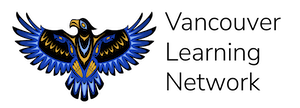Explorations in Social Studies 11
Explorations in Social Studies 11 Course Overview
Big Ideas
Rapid industrialization, urbanization, and economic growth in Asia in the late 20th century have created complex social, political, and environmental challenges (adapted from Asian Studies 12 – 1850-present). | Cultural expressions convey the richness, diversity, and resiliency of B.C. First Peoples (from B.C. First Peoples 12). | Understanding the diversity and complexity of cultural expressions in one culture enhances our understanding of other cultures (from Comparative Cultures 12). | Physical features and natural resources influence demographic patterns and population distribution (adapted from Human Geography 12). | Understanding how political decisions are made is critical to being an informed and engaged citizen (from Political Studies 12). | ||||
The rapid development and proliferation of communication and transportation technologies in the 20th century led to profound changes in personal and national identities (adapted from 20th Century World History 12). | Indigenous peoples are reclaiming mental, emotional, physical, and spiritual well-being despite the continuing effects of colonialism (from Contemporary Indigenous Studies 12). | Religion can powerfully shape social, political, legal, and environmental values (from Comparative World Religions 12). | The implementation of economic theories has profound effects on social and political decision making and movements (from Economic Theory 12). | The intentional destruction of peoples and their cultures is not inevitable, and such attempts can be disrupted and resisted (from Genocide Studies 12). | ||||
A society’s laws and legal framework affect many aspects of people’s daily lives (from Law Studies 12). | Examining questions in philosophy allows people to question their assumptions and better understand their own beliefs (from Philosophy 12). | Social justice initiatives can transform individuals and systems (from Social Justice 12). | Decision making in urban and regional planning requires balancing political, economic, social, and environmental factors (from Urban Studies 12). |
|
From: https://curriculum.gov.bc.ca/curriculum/social-studies/11/explorations-in-social-studies
Introduction
Explorations in Social Studies 11 streams to give the students a well-rounded knowledge and mindset. Students will study a variety of different topics while looking at Human Geography, Social Issues, 20th Century History, Law Studies and B.C. First Peoples. Various platforms will be used including film, primary and secondary sources, YouTube Videos. One goal of Explorations in Social Studies 11 is to prepare students for senior Social Studies courses, as well as post-secondary programs where they need to be creative and independent thinkers who can articulate ideas, manage their time and be self-directed learners.
Where Does This Course Fit?
- Prerequisites: Social Studies 10
- Graduation Status: One of the Grade 11/12 Social Studies options required for graduation
Course Materials
- All materials for each assignment are visible in each assignment’s instructions. You just have to click on the link or the title.
Brief Outline
Unit | Description |
Physical and Human Geography | Air and Water Quality vocabulary/Report from 2040 on success of policies; Climate and Weather vocabulary and debate; Climate Change Diagram/composition/vocabulary; Ocean Wise Plastic Wise video summaries |
20th Century World History | Two Teach Rock Activities that bring together music culture and politics in a historical context. Totalitarian political movements in the 20th century; impact of communication technology in the 20th century. |
Law Studies | Basics of Criminal and Civil Law vocabulary and 2 summary assignments |
B.C. First Peoples | Historical collage of west coast peoples and artist’s statement explaining the choices you made |
Assessment Percentage Breakdown
Assessment Type | Percentage of the Course |
Start Up Assignment | 5% |
Assignments | 49.5% |
Midterm exam | 10% |
Quizzes | 15.5% |
Final exam | 20% |
You have up to a year to complete your course.

